You’ve walked the Seine, stared at the Eiffel Tower, and maybe even tried to order coffee without sounding like a tourist. But have you ever danced barefoot on a wooden floor under a canopy of string lights, while a live conga line snakes through the room and someone hands you a glass of spiced rum that tastes like summer in Havana? That’s Pachamama Paris.
If you think Paris nightlife ends at jazz clubs and champagne bars, you’re missing half the party. Pachamama isn’t just another bar-it’s a full-blown cultural explosion. Tucked away in the 11th arrondissement, this place doesn’t just play Latin music. It breathes it. Feels it. Lives it.
What Exactly Is Pachamama Paris?
Pachamama Paris is a Latin-inspired nightclub and cultural hub that blends Peruvian, Colombian, Brazilian, and Cuban rhythms into one wild, warm, and welcoming night. The name comes from the Andean earth goddess Pachamama, symbolizing nature, fertility, and community. And that’s exactly what you get here: a space where people from all walks of life come together to move, eat, drink, and connect.
It opened in 2021, right after the pandemic lockdowns lifted, and instantly became a magnet for expats, tourists, and locals tired of the same old Parisian scene. The interior? Think lush greenery, hand-painted murals of Andean spirits, wooden benches, hanging lanterns, and walls covered in vintage vinyl records and folk art. No sterile white walls or mirrored ceilings here. This place feels alive.
Why Pachamama Stands Out in Paris Nightlife
Paris has plenty of clubs. But most of them play house, techno, or top 40 remixes. Pachamama doesn’t just play Latin music-it celebrates it. Live bands. DJs who know the difference between cumbia and champeta. Salsa lessons that start at 9 p.m. and end when the last person stops sweating. The energy is contagious.
One night last month, I watched a 70-year-old French grandmother in a flowy dress take the floor with a 22-year-old Colombian dancer. No one cared about age, language, or where they came from. They just moved. That’s the magic of Pachamama.
It’s also one of the few places in Paris where you can get authentic ceviche, arepas, or churros with dulce de leche at 2 a.m. The kitchen stays open late, and the food is made fresh daily by chefs from Peru and Colombia. No frozen appetizers. No generic tapas. This is home cooking, served with pride.
What to Expect When You Walk In
You’ll find Pachamama on Rue de la Roquette, just a five-minute walk from the Voltaire metro station. The entrance is unassuming-a simple black door with a glowing green sign. No bouncers in suits. No velvet ropes. Just a friendly host who smiles and says, “Bienvenidos.”
Inside, the space opens up into two main areas: the main dance floor and a quieter lounge with low couches and candlelit tables. The sound system? Crystal clear. Bass you feel in your chest. No echo, no distortion. Even when the room is packed, you can still hear the clink of a guiro or the wail of a trumpet.
By 10 p.m., the salsa floor is packed. By midnight, the reggaeton beats take over. Around 1 a.m., someone brings out a bottle of pisco sour and passes it around. No one pays. It’s just part of the night.
Live Music, DJs, and Events
Pachamama doesn’t rely on pre-recorded playlists. Most nights feature live musicians: drummers from Colombia, singers from Brazil, guitarists from Peru. On weekends, they host themed nights-Cumbia Sundays, Afro-Cuban Mondays, Samba Saturdays.
Last month, they had a full moon celebration with a traditional Andean ceremony led by a Peruvian shaman. It started with burning copal incense, then moved into a group dance circle. It wasn’t a gimmick. It felt real. People cried. People laughed. People left with a new perspective.
Even if you don’t dance, you’ll find yourself drawn in. The music doesn’t demand you to move-it invites you. And once you let go, you’ll wonder why you ever stayed stuck in those stiff, silent clubs.
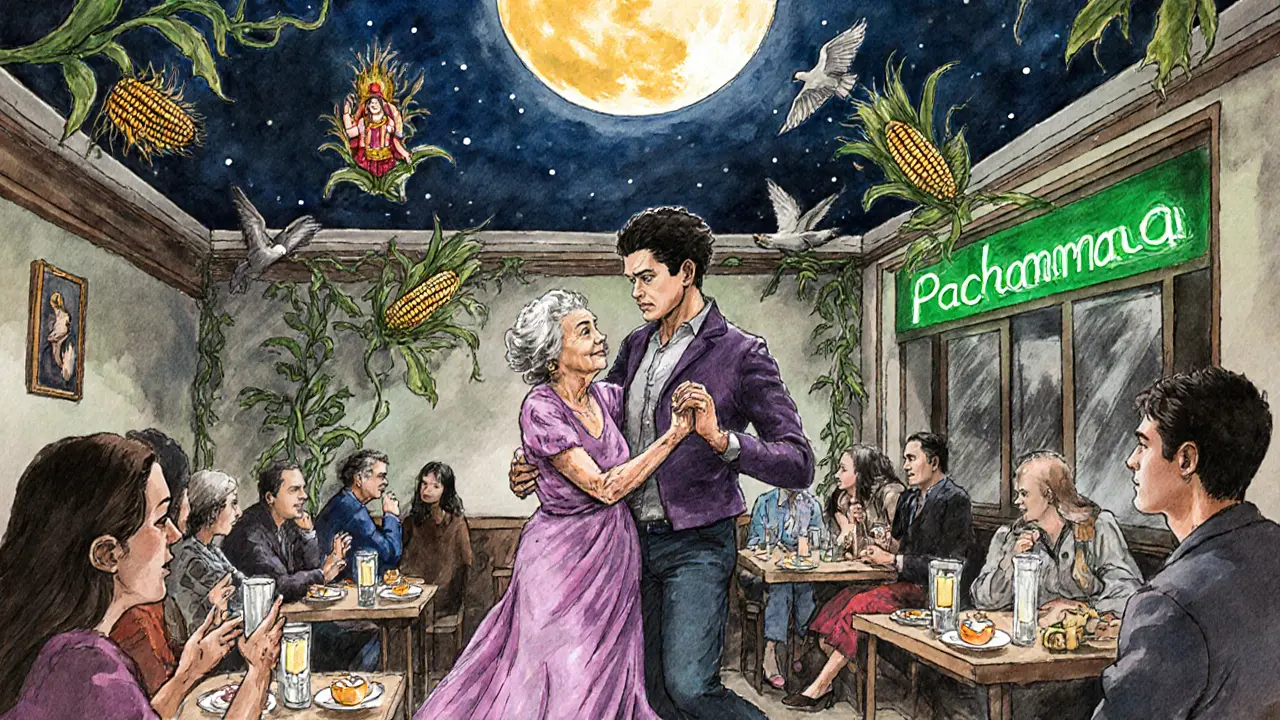
Food and Drinks That Taste Like Home
The menu is short but powerful. Try the ceviche de pescado-fresh fish cured in lime, red onion, and aji amarillo. Or the arepas, grilled corn cakes stuffed with cheese, black beans, and avocado. They come with a side of spicy chimichurri that makes your tongue tingle.
Drinks are just as thoughtful. The caipirinha is made with real cachaça, not syrup. The chicha morada (a purple corn drink) is sweet, spiced with cinnamon, and served cold. And yes, they have the best mojitos in Paris-hand-muddled mint, not shaken from a bottle.
They also serve coffee until 1 a.m. If you’re still awake after dancing, order a cortado. It’s the perfect way to wind down.
How to Get There and When to Go
Pachamama is open Wednesday to Sunday, from 8 p.m. to 2 a.m. Doors open at 8, but the real energy starts after 10. Weekends are packed-expect a 20-minute wait. Weeknights are quieter, perfect if you want to sit by the window and watch the streetlights flicker while someone plays a slow bolero.
Address: 103 Rue de la Roquette, 75011 Paris. Nearest metro: Voltaire (Line 9). It’s a 10-minute walk from Gare de Lyon, so if you’re coming from the train station, just follow the music.
There’s no cover charge on weeknights. Weekends are €10 at the door. But here’s the trick: if you show up before 10 p.m., you get a free drink. That’s right-free. And it’s not a token. It’s a full cocktail.
What to Wear
Parisians dress up. But not here. Pachamama is the rare place where you can wear sandals, a sundress, or even shorts and still feel perfectly at home. No suits. No high heels. No pretending. People come as they are. That’s part of the charm.
Pro tip: Bring a light jacket. The air conditioning is strong, and once you start dancing, you’ll sweat through your shirt in five minutes.
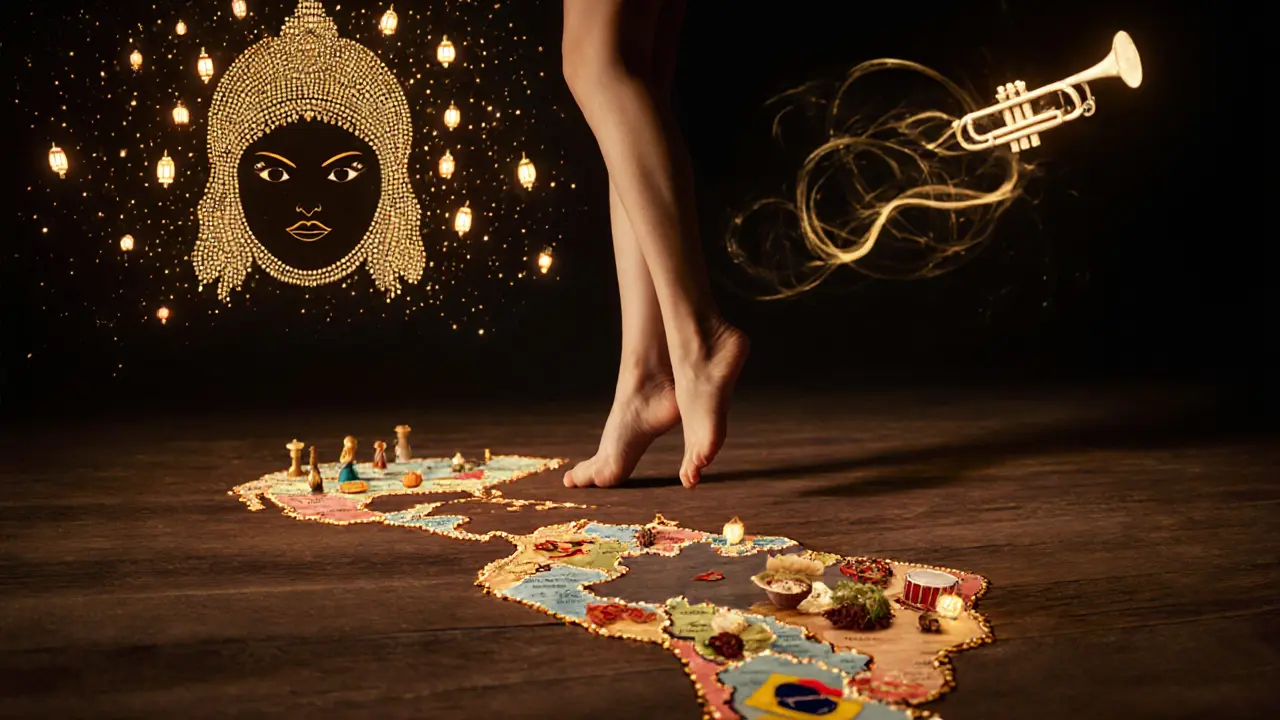
Pachamama vs. Other Latin Spots in Paris
| Feature | Pachamama Paris | La Clandestine | El Patio |
|---|---|---|---|
| Music Style | Live bands, authentic Latin genres | Reggaeton and urban | Salsa and bachata |
| Food Quality | Authentic, made daily | Basic tapas | Minimal options |
| Atmosphere | Warm, cultural, immersive | Clubby, loud, crowded | Traditional, quiet |
| Entry Fee | €0 before 10 p.m., €10 after | €15 | €10 |
| Best For | Real Latin experience, dancing, community | Partying, selfies, trendy crowd | Quiet dates, salsa learners |
Pachamama isn’t trying to be the flashiest. It’s trying to be the truest.
Frequently Asked Questions
Is Pachamama Paris only for Latin people?
No. Pachamama is for anyone who loves music, movement, and connection. You’ll find French locals, Americans, Japanese tourists, and Argentinian expats all dancing side by side. No one asks where you’re from. They just ask if you want to dance.
Do I need to know how to dance?
Not at all. There are free salsa and cumbia lessons every Wednesday and Saturday at 9 p.m. The instructors are patient, funny, and never make you feel silly. Even if you’ve never moved to a beat in your life, you’ll be dancing by the end of the night.
Is it safe at night?
Yes. The neighborhood is quiet and residential. The staff is trained to handle any issues calmly and respectfully. There’s no aggression, no pushiness. People come to celebrate, not to fight. You’ll feel safer here than in many downtown clubs.
Can I bring a group?
Absolutely. Groups of 6 or more get a reserved table if you call ahead. But even without a reservation, you’ll find space. The vibe is so open, strangers often join your table. That’s the point.
Is there parking?
Street parking is limited and paid. The best option is to take the metro. If you’re coming from outside Paris, use Uber or Bolt. The area is very walkable, and the club is just off the main road.
Ready to Feel the Beat?
Pachamama Paris isn’t just a club. It’s a reminder that music, food, and human connection don’t need permission to thrive. In a city known for elegance and restraint, it dares to be joyful, messy, and real.
If you’ve ever wanted to feel like you’re not just visiting Paris-but truly part of it-this is your place. Show up early. Dance like no one’s watching. Eat like you’re hungry. And when the night ends, you’ll walk out not just tired, but changed.

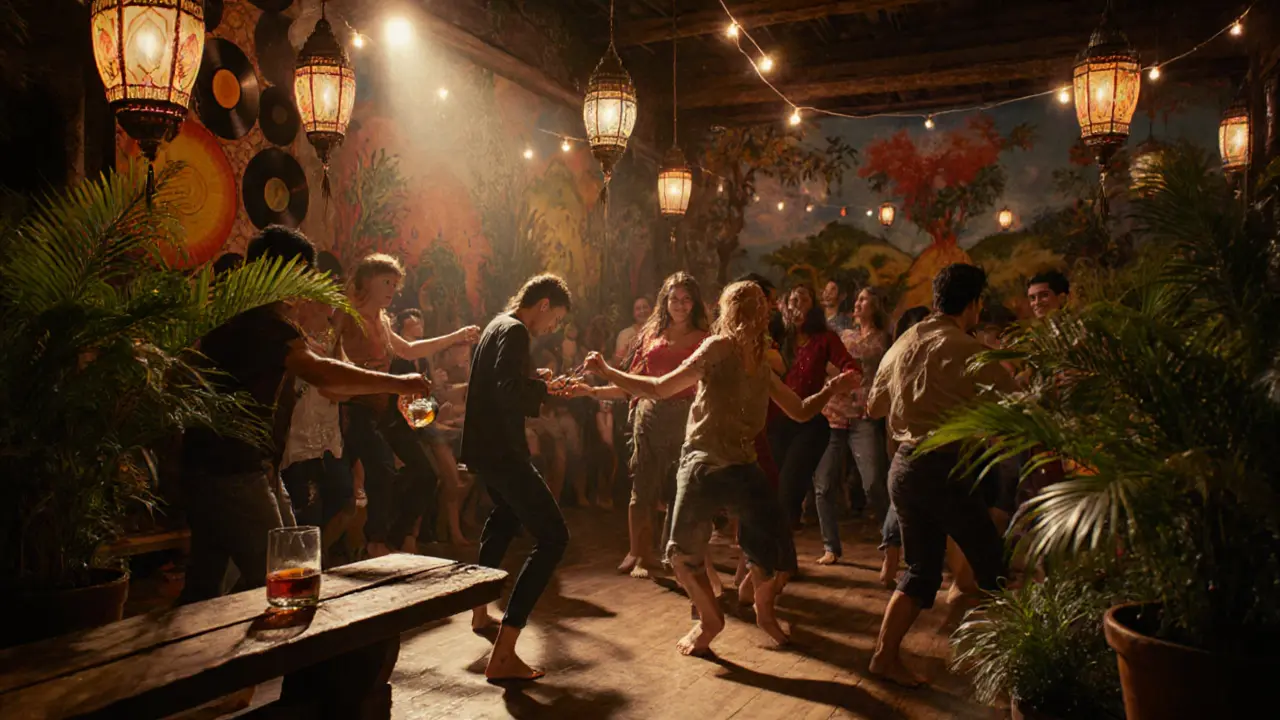
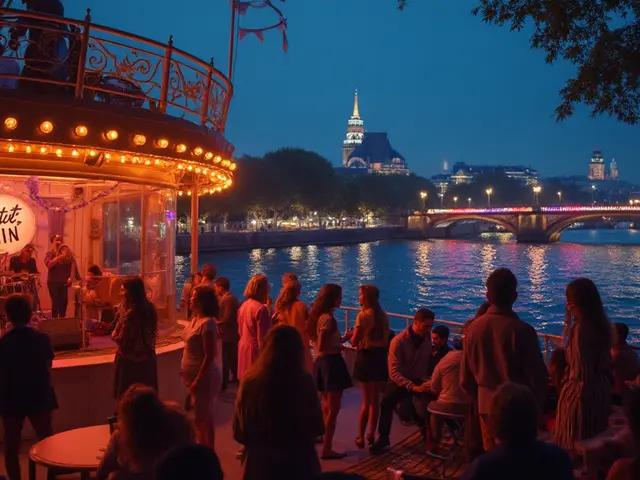
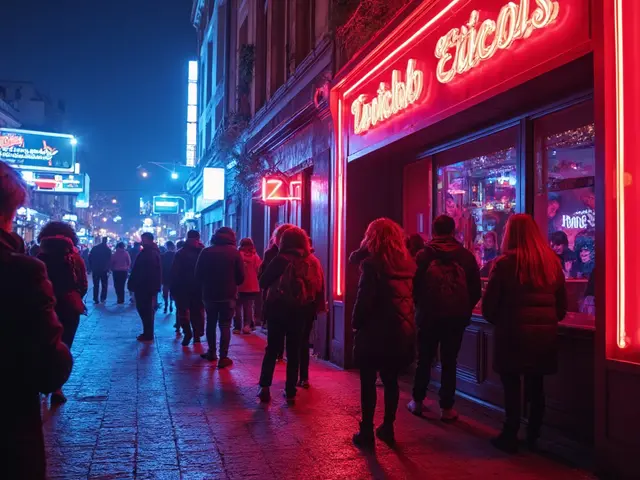

Dale Zebick
November 8, 2025 AT 11:52Pachamama sounds like the kind of place where you forget you’re in Paris and just remember you’re alive
Went last weekend after work and danced until my shoes fell off
No judgment just rhythm and good vibes
Best night I’ve had in this city in years
Chuck V
November 8, 2025 AT 23:11Let me tell you something real - most people think Paris is all croissants and silence but Pachamama? It’s the heartbeat they tried to bury under haute couture and pretentious cafés
It’s not just a bar it’s a revolution wrapped in string lights and cumbia beats
I saw a French grandma salsa with a Colombian kid who didn’t speak a word of English and they understood each other better than most couples I know
The food? Real. Not that sad tapas you get at tourist traps
The drinks? Hand-muddled not poured from a plastic jug
The energy? It doesn’t just fill the room it rewires your soul
And the fact that they let you in for free before 10 p.m.? That’s not a promo that’s a gift
Paris needed this. The whole damn city needed this
Don’t just go to dance - go to remember what connection feels like
And if you’re still sitting at home scrolling through Instagram wondering why life feels hollow
Go to Pachamama and let the music fix you
Bonnie Searcy Squire
November 10, 2025 AT 16:50Starla Scholl
November 11, 2025 AT 05:46I know Bonnie’s comment sounds wild but I get where she’s coming from - sometimes places like this feel too good to be true
But I’ve been there twice and it’s real
It’s not about politics or culture wars - it’s about humans choosing joy over isolation
And honestly? We need more of that
Even if you don’t dance - just sit by the window with a chicha morada and listen
You’ll feel something you didn’t know you were missing
Jeff Shaw
November 12, 2025 AT 21:40I cried the first time I heard the trumpet solo at 1 a.m.
Not because I’m emotional (I’m not) but because for the first time in years I felt like I belonged somewhere
And the guy next to me who was sweating through his shirt? He smiled and handed me a napkin without saying a word
That’s the magic
❤️
Hemanth Nadipineni
November 14, 2025 AT 05:26Man I wish we had something like this back home in Mumbai
People here think Latin music is just ‘Despacito’ and clubs are all about loud bass and flashing lights
Pachamama feels like family
Even if you don’t know anyone you leave knowing someone
That’s rare
Keep doing what you’re doing 🙏
Ken Chess
November 15, 2025 AT 09:10Just got back from Pachamama and I still have the rhythm in my bones
They don’t just play music they breathe it
And the ceviche? Best I’ve ever had outside Lima
No fancy plating no Instagram filters just pure flavor
And the best part? No one cares if you can’t dance
They just pull you in and show you how
Paris needs more places like this
Not more museums
More heart
Melissa Pemberton
November 17, 2025 AT 03:24the vibe was so chill and the girl next to me taught me how to do the cumbia step and i looked like a confused penguin but no one cared
also the pisco sour? chef’s kiss
definitely going back next week 💃✨
Vicky Durel
November 17, 2025 AT 06:56Dale Zebick
November 18, 2025 AT 18:44Starla you’re right - it’s not about politics
But Vicky you’re missing the point
People don’t go there to get drugged
They go there to feel alive again
And if you think a Peruvian shaman burning copal is a cartel front
Then maybe you’ve forgotten what real joy looks like
Go sit in silence for a week
Then come back and try dancing
You might surprise yourself